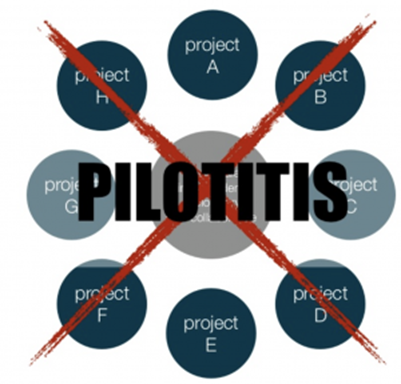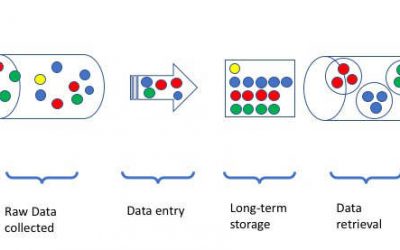What is sustainability in development projects?
Sustainability is a term that’s often used nowadays. It usually means ‘green’ projects that aim to reduce our impact on the environment. Within the context of projects that support developing countries, the concept of sustainability is used to describe how well a project survives after the implementation phase (and the funding!) has ended. Projects with six months of funding might show all the signs of success, but after those six months are over, the implementation team has moved on to another project, and the local team are left to maintain the project, how long will it last?
Project-sustainability is closely tied to local ownership, the ability for the local beneficiary to maintain the system, take it as their own, adapt it to suit their own needs and make decisions about it without relying on support from outside. These concepts have been part of the development studies field for over fifty years, and nowadays, any western aid project designed for a developing country should consider the long-term sustainability, addressing how the local community can take ownership over the project.

What does ‘salmon fishing in the Yemen’ have to do with IT projects in Myanmar?
I watched one of my favourite movies yesterday, ‘Salmon fishing in the Yemen’. It’s a great movie about a fictitious project, funded by a Yemeni sheik and lead by a British scientist and a British project manager, where fly-fishing is introduced into the Wadi in the Yemen. Not to spoil the plot of the story… but one of the subplots is the danger of running with a development project without close collaboration with the local community. The technical parts of the salmon project are fine, but there’s a lot more to a development project than just overcoming technical hurdles. Yemeni terrorists send signals throughout the project timeline, and the project-team don’t properly involve the Yemeni people, which lead ultimately to the failure of the first version of the project. Ultimately, Ewan McGregor’s character changes his plan for the renewed version of the project, involving the local community, have a manageable scope.
The lesson from the movie is that development work is more than just the overcoming of technical hurdles. There needs to be local ownership, and a long-term plan for how the project will persist. The project needed a fisheries expert at all times. Without the availability of that kind of expertise, it would be doomed to failure.
From fishing to phishing…
That brings me to IT projects in developing countries, sometimes referred to as information and communication technologies for development (ICT4D). Clearly ICT can play its part in helping to solve many of the problems in developing countries. Better data storage, dissemination of knowledge, communication that reduces the need to travel… There are so many potential benefits.
The problem is that ICT4D projects are complex. There are so many complicated pieces in the puzzle, computers, laptops, smartphones, network connections… Then there’s the software that runs on the devices. This complexity is reflected in the huge failure rate for ICT4D projects. Richard Heek estimates in his fantastic textbook ‘ICT4D’ that over 70% of ICT projects in developing countries fail.
Recognise when a project will need expert maintenance
One of the major barriers to the success of an ICT project is its continued reliance on expertise. A salmon-fishing project in the Yemen is sustainable, provided that a multimillionaire sheik can afford to fund the ongoing maintenance of the system by a fisheries expert (in fact, this wasn’t even the plan at the start of the movie. The original plan was that Ewan McGregor’s character would be involved in setting it up. He only committed to it long-term in the middle of the story. Without that commitment, there was no way the project would have been sustainable.. but I digress).
If a project needs expert maintenance, and the expertise is not available locally, then the project is very likely to fail. So, either the project has a long-term commitment for funding (in IT, this should be about 5 – 10 years), or else the project need to be fundamentally redesigned BEFORE it is given the green light.

Pilotitis
The enormously high failure rate for ICT4D projects has been coined ‘pilotitis’. Projects are poorly designed, and they never survive beyond the pilot stage. We need to do better.
What can we do?
1, Expert maintenance skills
Recognise that any expertise you are offering will eventually need to be handed over to a local team-member. If any of the maintenance work involves expertise that is not available locally, there is a high risk that the project will fail after you leave.
2, Innovate in the implementation before the technology
Avoid innovation. The more you innovate, the less likely it will be that the local team will be able to find the expertise to maintain the system after you leave. If you want to innovate, then be innovative in your approach to implementation. It’s true that there have been amazing advances in technology in the past decade. But many (most?) the problems that ICT4D can solve in developing countries can be solved by innovative implementations of old technology. Blockchains are exciting, IoT systems are fascinating, but unless the technology is understood by the local teams, and unless they can maintain it and adapt it themselves, then the projects are likely to fail.
3, Get used to using Excel and Access
I know… Excel isn’t a database, and Access is notorious. But they give the user full control over their own data and their own workflows. Get used to it. If you want to replace their antiquated Access database with a Laravel PHP webapp on an AWS webserver, you’ll need to have a really good reason, and you need to be 100% certain that someone at the beneficiary team is well-versed in Laravel, PHP, webserver maintenance and security. Otherwise, you’d be better off spending your time training the team in Access database design, because that’s probably a more sustainable solution.




